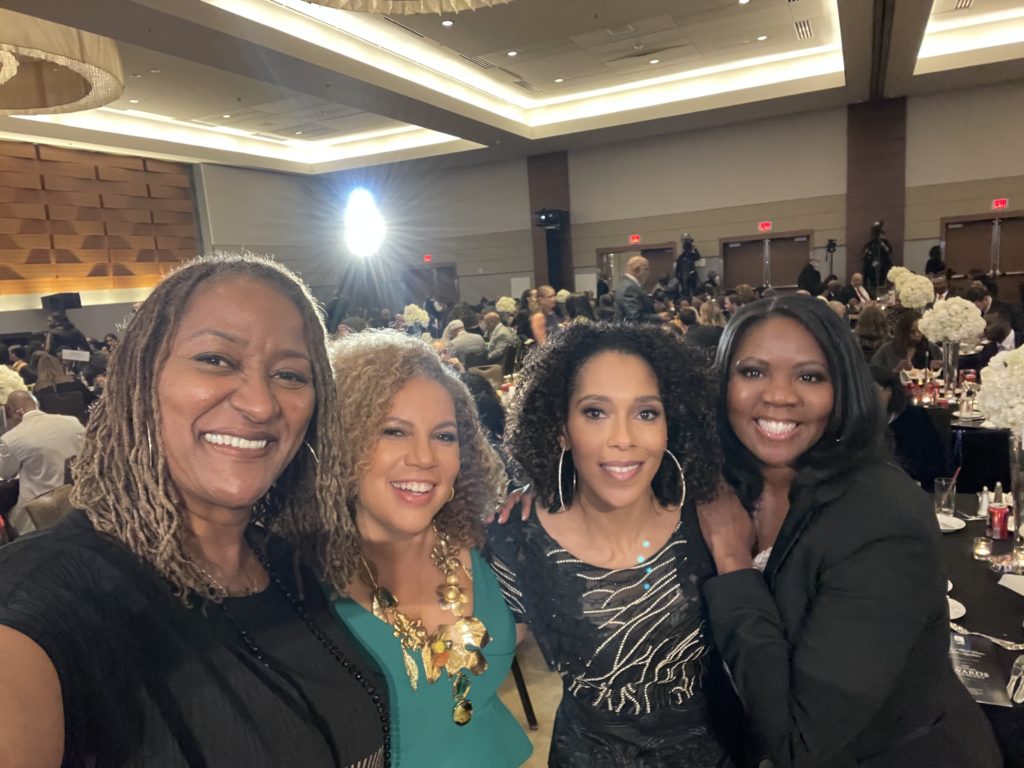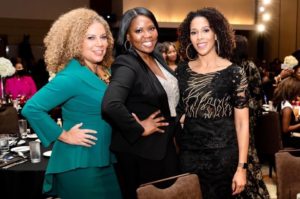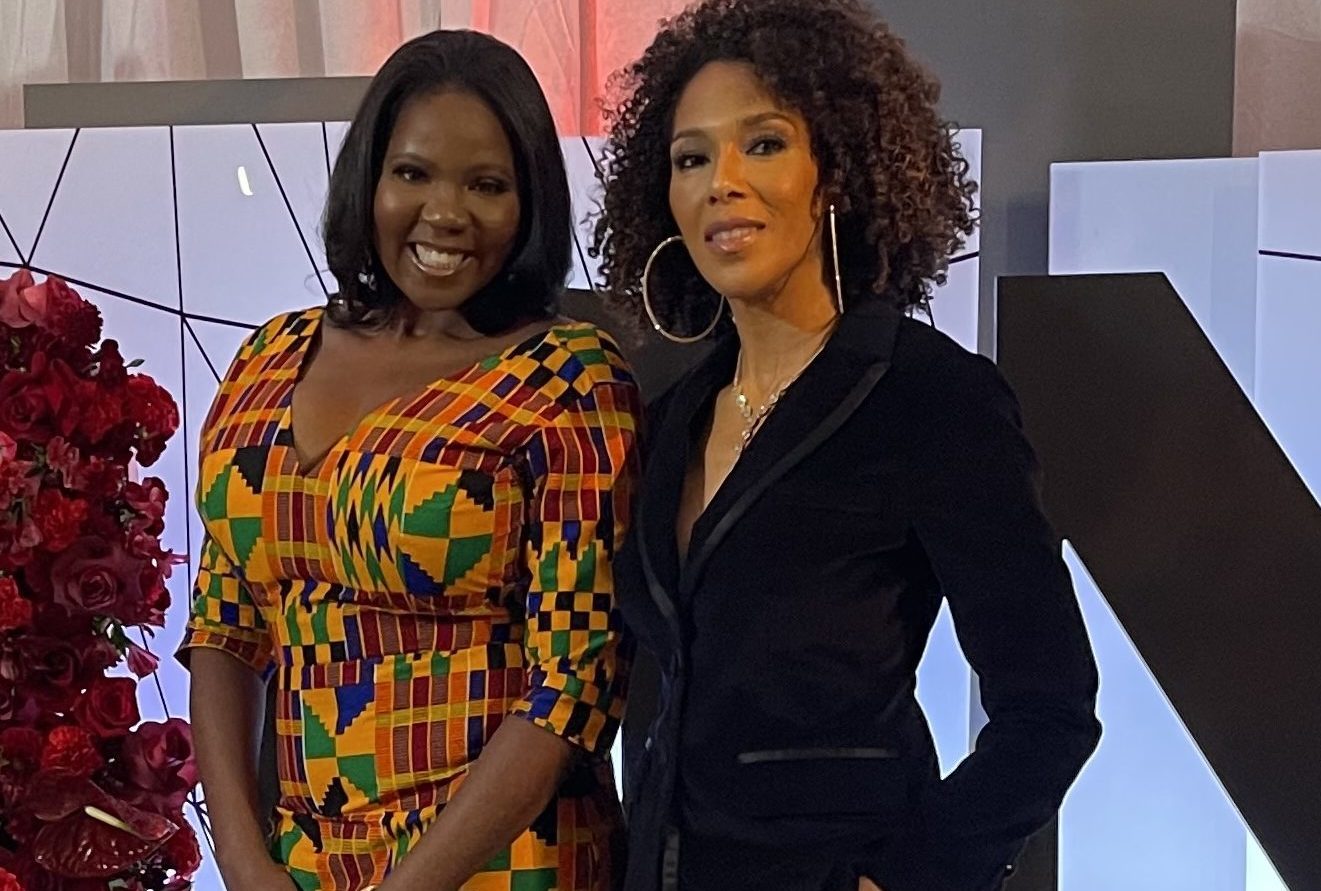The CROWN Act has become a revolutionary movement. The movement has spread like wildfire across the nation, garnering media attention, support and approval. This initiative is backed by support from the CROWN Act legislation.
For years, Black women have been on the receiving end of discrimination because of their hair. The CROWN Act seeks to end discrimination based on hairstyle and hair texture. In this interview, Adjoa B. Asamoah, Founder and CEO of ABA Consulting and Co-creator of The CROWN Coalition, and Orlena Nwokah Blanchard, President and COO, JOY Collective and Co-creator of The CROWN Coalition, discuss the CROWN Act movement, their West African roots, and the evergreen debate about Ghana-Nigeria Jollof rice.
21Ninety: How did you two meet?
Adjoa B. Asamoah: I met Orleena and our two other co-creators at The Essence Festival in 2018, and that is fitting because Essence Festival is a place where Black women gather and celebrate each other in terms of our brilliance, beauty, intelligence, and sisterhood.
Orlena Nwokah Blanchard: That is exactly how we met. My partner Kelly Richardson Lawson and I co-own a firm called JOY collective, and we do cultural marketing for several different blue chip companies. The Dove brand, led by our other co-creator Esi Eggleston Bracey, had engaged us to champion this movement around hair discrimination. At the time, we had just seen the Chastity Jones case that the Supreme Court refused to hear and knew that it was a Civil Rights issue and knew it was something that we didn’t have the expertise to address at the legislative level. When we met at Essence at a time when we were trying to figure out how we, as people who do purpose marketing and communications, could create a movement that has an impact from a Civil Rights and a
policy perspective.

21Ninety: What pushback did you have when you embarked on this project, and how did you overcome that?
Orlena Nwokah-Blanchard: For me, what I observed was the idea that people thought that the movement was too trivial. Many people though that something like hair, which is an extension of our body, is just a thing that people can just cut off, and it will grow back, and therefore, that was too
trivial of an issue to associate with this social or economic advancement of a race of people. Someone said to me, “how can you make an argument about legally protecting natural black hair? Why can’t I then protect a blue mohawk?” The kind of challenges that
we got were to compare hair as it grows out of our head, as it is an extension of our Blackness and our African heritage, and liken it to different choices that people who are not historically oppressed people or historically oppressed in this country, and how they choose to wear their hair. Many people trivialized the subject of hair being a racial characteristic and the idea that we should be able to protect our social and economic standing.
Adjoa B. Asamoah: I also want to underscore the strategy that is a big part of this movement. With Orlena being a marketing strategist and, in her own right, a social impact strategist, and me being a legislative strategist and in my own right, a social impact strategist as well, I really just want to underscore the critical importance of the strategy, because when you are strategic about what you’re doing, you can then challenge the naysayers because you’ve done your research. We have a legal strategy, a legislative strategy, and a marketing strategy, which encompasses Coms and PR. We were able to articulate what our mission was and, in doing so, build a solid system of support around the movement. Many people tried to dismiss our lived experience and deny that anti-blackness is as pervasive as it is.

(From L-R): Kelli Richardson Lawson, Adjoa B. Asamoah, and Orlena Nwokah-Blanchard.
21Ninety: How does the CROWN Act address hair specifically as a racial characteristic?
Adjoa B. Asamoah: It’s less about style and more about racial identity. My hair is a racial characteristic, and the CROWN Act is about identifying our hair as a racial characteristic. So it is about clarifying that our hair is a racial characteristic.
21Ninety: In many ways, you are both modern-day Civil Rights leaders, and historically, every Civil Rights know leader has persevered through adversity. What has been your experience?
Orlena Nwokah-Blanchard: I was born to a British mother and a Nigerian father. I was primarily raised in England and Nsukka, Nigeria. I came to the United States in middle school, but my experience in identity spans multiple continents, and when you are a person of mixed
race and mixed nationality. As an African, you look like me; wherever you are in the world, you don’t exactly fit in. As a girl in England, I was too brown, but not brown enough in Nigeria. I moved to the United States in the middle of Indiana in the 1980s. As a teenager in the 80s, there were no black people, let alone Africans, where I lived, so my experience with grit and resilience has been one of a journey that is almost 50 years long. I am well aware and have been raised with that sense of resilience and grit, and it comes from adaptation in the sense of still standing strong and finding footing in my own identity. Also, my resilience comes from my ancestors and the feeling of peace knowing that I am doing what I was born to do, which is to move Black people forward.
Adjoa B. Asamoah: We share that in common, which is why we vibe. For me, it is two-fold, and I believe that language matters, which is why I’m usually challenged by language like resilience. Although I know we as Black people have had to be resilient in many situations, I challenge the idea that we have to be resilient and have grit. Other people don’t have to be that all of the time. This is why I think it is important to make a protective space where we do not always have to be resilient and strong. I caution sisters to create and protect time, not to be resilient and strong, and have grit all the time. We should be able to be soft and happy and not always in this constant state of fighting because if we don’t make sure that we take time for restoration and rest and happiness, we burn out, and we’re not able to contribute as much to the fight to move us forward.
21Ninety: What does equity mean to you?
Adjoa B. Asamoah: I was raised by Pan Africans, and that had a big influence on my work so I have always identified as a lifelong champion of racial equity long before it was the hot thing to say. Now people are using the language racial equity, but that has been my lived experience. I attended my first rally at the age of two on my dad’s shoulders because that’s who he is. My father was born under the vicious system of colonization and came to this country with literally very little in terms of financial resources, but everything in terms of a sense of racial pride, cultural pride, and so much else. So for me, being born to a mother born here in the states, in the Jim Crow south, and so those two backgrounds had a big impact.
21Ninety: The CROWN Act has become a national phenomenon, but there is more work to do in addressing racial discrimination based on hair. What are your thoughts on this?
Orlena Nwokah-Blanchard: Unfortunately, the attitudes and behaviors typically associated with black have traditionally and historically been negative. The laws will protect Black people against behavior and actions, but they will not protect against attitudes and beliefs. We need to shift and reprogram how we as a people think about race and equity. We have a lot of work to do to change over 400 years of mental and emotional programming.
Adjoa B. Asamoah and Orlena Nwokah Blanchard, with their innovative team, have relentlessly continued to strategize toward and champion the CROWN Act movement. Their West African roots also cause them to occasionally argue about Jollof rice and the eternal question of whether Ghanaian Jollof is more delicious than Nigeria’s Jollof rice.
